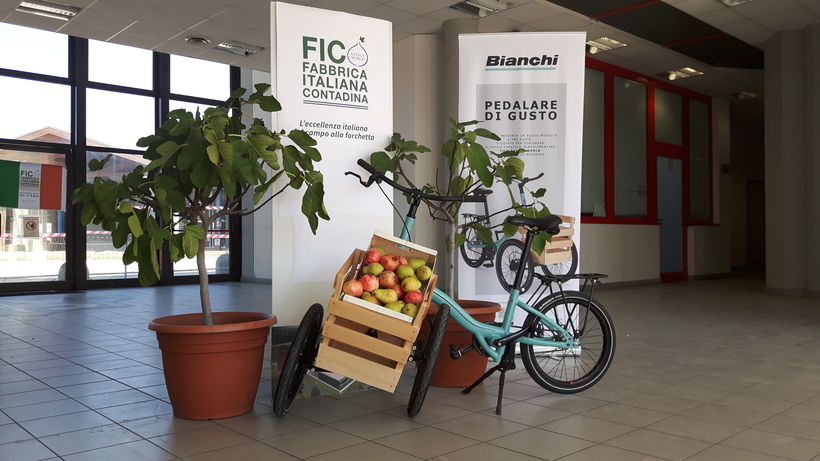
There is little doubt that increasing numbers of consumers around the world are showing enthusiastic interest for Italian food. Ingredients and dishes are featured in stores and restaurants, while home cooks familiarize themselves with regional traditions and culinary techniques. The 2015 Milano Expo reinforced the prominence of Italian gastronomy, stimulating producers, exporters, chefs, and even the Ministry of Foreign Affairs to promote the whole agrofood sector. One of the issues all the stakeholders agree on is the need to safeguard Italian products from what they denounce as counterfeits, which often are absolutely legal due to the variety of commercial and intellectual property systems worldwide.
A player that has definitely acquired a special status in the business of Italian food is Eataly. A few years after the opening of its first store in Turin, Italy, now the brand has become visible all over the world, with openings in Chicago, Seoul, Istanbul and São Paulo, among others. Inevitably, such a massive organization has also attracted a healthy amount of criticism, ranging from the prices paid to the producers to the carbon footprint that comes with the transportation of food around the globe, the freshness of the produce in some stores, and the curatorial choices regarding the items on sale.
Eataly is now getting ready for the next step in its expansion, but one that will put it on a potentially different trajectory. In the new park FICO Eataly World (FICO is an acronym for Fabbrica Italiana Contadina, that is Italian Farming Factory), opening near Bologna, Italy, in October 2017, the organization is bringing production to the forefront. The core idea is to make supply chains visible to consumers, educating them about food systems and biodiversity. Instead of just selling pasta, for example, the 20-acre park will include a small field where wheat will be grown, an artisanal mill and an industrial one, an industrial pasta factory and artisanal pasta makers. Different crops will be grown on the premises and live cattle, sheep, as well as other farms animals will enliven the outer rims of the park.
The focus will not only be on small, artisanal producers, which are central in the mystique of Italian food as an expression of culture and tradition. Eataly World will also showcase industrial production, as it plays a crucial role in the Italian economy. Forty of the more noticeable Italian companies have been selected by Eataly based on their engagement with the park theme, their willingness to share the risk of the financial investment, their capacity to sustain the effort in the long run and, of course, the quality of their output. Other smaller companies, supported by Eataly, will manufacture and sell their products, to make sure that the park offers a comprehensive presentation of Italian food in all its aspects.
Access to the park will be free, but visitors will have to pay to take advantage of the multimedia exhibitions, tastings, courses, and special events that will fill the calendar, also thanks to a conference center that can fit up to 1,000 guests. Of course, visitors will have plenty opportunities to buy products in 97,000 square feet of retail space, and to taste them in the 25 restaurants and street food stalls located within the park. The park is so large that three-wheeled bikes with baskets will be available to visitors, allowing them to shop around and then bring products back to their cars.
Eataly World, developed in collaboration with city and regional authorities, Slow Food, and Coop (a network of Italian cooperatives that operates one the largest supermarket chains in the country), is located in the wholesale market facilities that were built in the 1970s and immediately turned out to be too big for the city and for a distribution system in which big buyers such as supermarkets and institutions were already establishing their own purveying arrangements. The Agricultural School of the Bologna University moved into some buildings, while the rest is being gutted and renovated to contain the new park. A smaller wholesale market for the city has been built nearby.
Such a huge enterprise has ruffled many feathers in the town of Bologna. Demonstrators have protested the presence of such a behemoth, which some fear will affect small businesses and restaurants negatively. Eataly World argues instead that its presence will attract tourists – both Italians and foreigners – to the city. Although the mayor’s office fully endorses the effort, the locals still seem puzzled about what’s going on. Talking with restaurant and shop owners, cab drivers, students, and consumers in Bologna, it was clear that they had very fuzzy ideas of what the park will be, how many jobs it will create, and what its overall impact will be on the social dynamics of the town. As the construction proceeds, better local PR may be a long-term investment that could provide wider support to such a massive and innovative initiative.

Comments are closed.